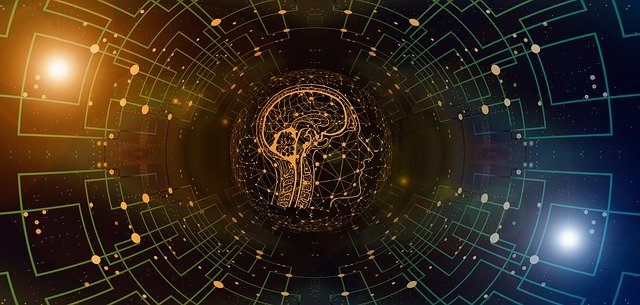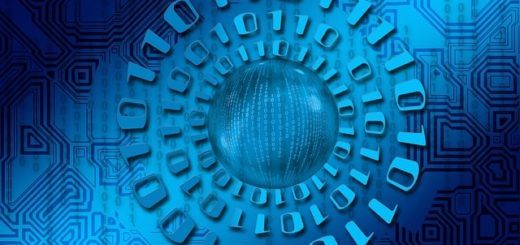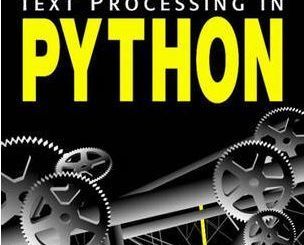9 Free eBooks on Artificial Intelligence to read in 2022

Artificial intelligence is an area where you need to develop your skills on a regular basis. Specialists are willing to share their knowledge, as this is a relatively new space. Some people do it for free! If you’re looking for the best free artificial intelligence, machine learning, or deep learning ebooks, this list is for you. Here is an overview of our most popular free ebooks.
1. The Hundred-Page Machine Learning Book
Author: Andriy Burkov
Artificial intelligence is an area where you need to develop your skills on a regular basis. Specialists are willing to share their knowledge, as this is a relatively new space. Some people do it for free! If you’re looking for the best free artificial intelligence, machine learning, or deep learning ebooks, this list is for you. Here is an overview of our most popular free ebooks.Can 100 pages beat machine learning? I’m not sure, but I guarantee that this 100-page free ebook will give you almost all the information you need for beginners. And the authors promise in this book that by teaching you how machine learning works, you’ll be ready to build complex artificial intelligence systems, interview, or start your own business. don’t you trust him Read this and see for yourself! It’s worth noting that eBooks are distributed on a ‘read first, buy later’ fashion. This means you can download it for free and pay for this resource if you find it useful.
2.Dive into Deep Learning
Authors: Aston Zhang, Zack C. Lipton, Mu Li, Alex J. Smola
The second eBook on our must-read list is deep learning details. The author is an Amazon employee who teaches deep learning using Amazon’s MXNet library. It is important that they update their work on a regular basis so that you can be sure that you are reading the latest and most up-to-date information. Recently, the author has added new implementations to the books of two of the most popular DL libraries today, Pytorch and Tensorflow / Keras. This is the main advantage of this resource. The author updates his work on a regular basis, so you can be sure you’re reading the latest updates. Another advantage of this book is its interactivity. Readers can comment on each chapter, ask questions, and answer. In addition, you can rotate your code from Google Colab GPU books with just one click.
3. Python Data Science Handbook
Author: Jake VanderPlas
Python is a first-class tool for any data scientist. You will also learn how to use key tools such as IPython, NumPy, Pandas, Matplotlib, and Scikit Learn in this book. This resource is ideal for tackling everyday problems such as cleaning, manipulating, and transforming data, or for building machine learning models.
The full eBook is available for free on GitHub.
4. Deep Learning
Authors: Ian Goodfellow, Yoshua Bengio, Aaron Courville
Stay on the topic of deep learning. The author has created this next resource to help beginners get started in the field of machine learning with a focus on deep learning. Interestingly, one of the authors, Yoshua Bengio, won the 2018 Turing Award (Nobel Prize in Computer Science) for his work in deep learning. The online version is available directly from their website. Also, like previous eBooks, it’s updated regularly, but you’ll also need to subscribe to our newsletter to keep up-to-date with the latest research.
5. Interpretable Machine Learning. A Guide for Making Black Box Models Explainable
Author: Christoph Molnar
If you want to learn how to make machine learning decisions interpretable, this is the eBook. Learn how to select and apply the best interpretation for your machine learning project. This is a valuable source of knowledge for data scientists, statisticians, machine learning engineers, data scientists, statisticians, and anyone interested in machine learning.
6. Neural Networks and Deep Learning
Author: Michael Nielsen
If you want to know more about deep learning and neural networks, I highly recommend this resource. It will help you better understand the two subjects. Here’s how to build a deep neural network from scratch. This is perfect for beginners who want to get a solid foundation of the core principles of two complex themes. This book is best known in the chapter “Visual Proof that Neural Networks Can Compute Any Function”. This chapter presents a new, unconventional approach to this topic.
7.An Introduction to Statistical Learning with Applications in R
Authors: Gareth James, Daniela Witten, Trevor Hastie, Robert Tibshirani
Next, we recommend the winners of the 2014 Eric Ziegel Awards from Technicals. This eBook contains several R-Labs with an overview of statistical learning methods and detailed instructions on how to implement a particular method in a real environment. This is a great resource for both students and the practice of data scientists seeking to improve their skills.
8. Deep Learning with PyTorch
Authors: Eli Stevens, Luca Antiga, Thomas Viehmann
If you plan to use PyTorch to build neural networks, start your journey with this popular open source machine learning framework. The eBook provides a good introduction to the subject and shares hands-on knowledge related to pre-trained networks, how to use neural networks and convolutions, how to put models into production, and more. But hurry up. The eBook is only available as a free download for a limited time.
9. Machine Learning Yearning
Author: Andrew Ng
This book focuses on structuring machine learning projects. Learn how to make machine learning algorithms work. You can also read this to find out how to identify and prioritize the most promising aspects of your AI project, diagnose bugs in your ML system, and perform a variety of other important tasks. To download the resource, go to the website and fill out a short form.








